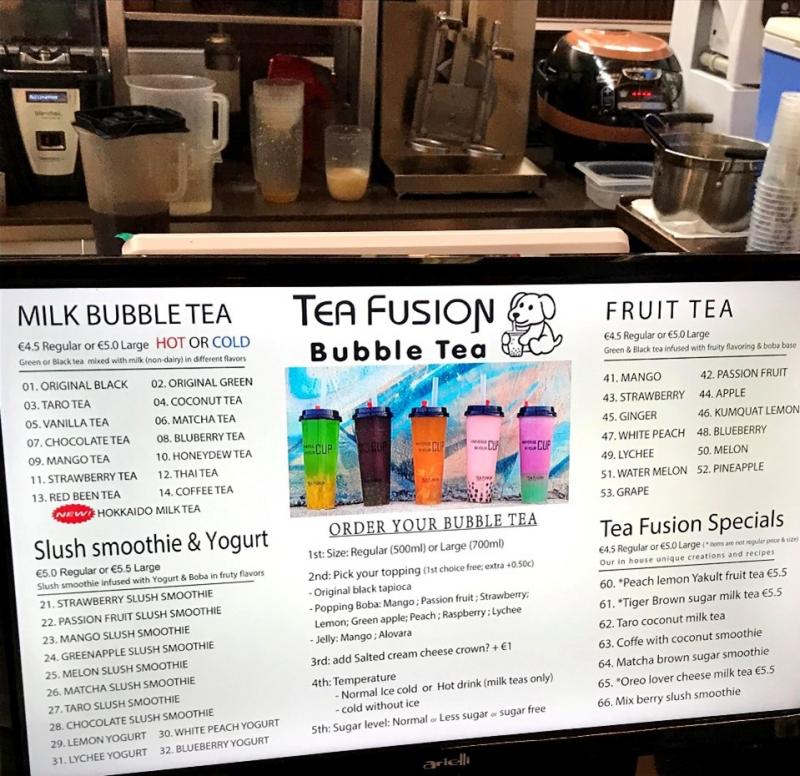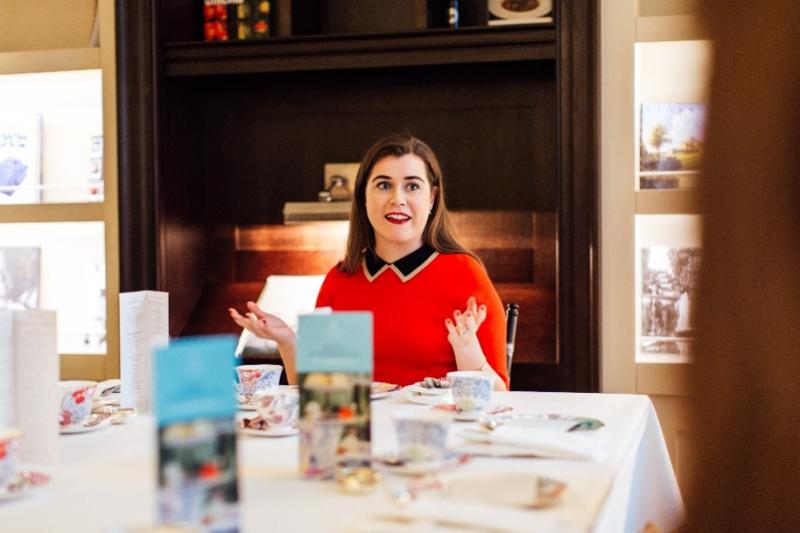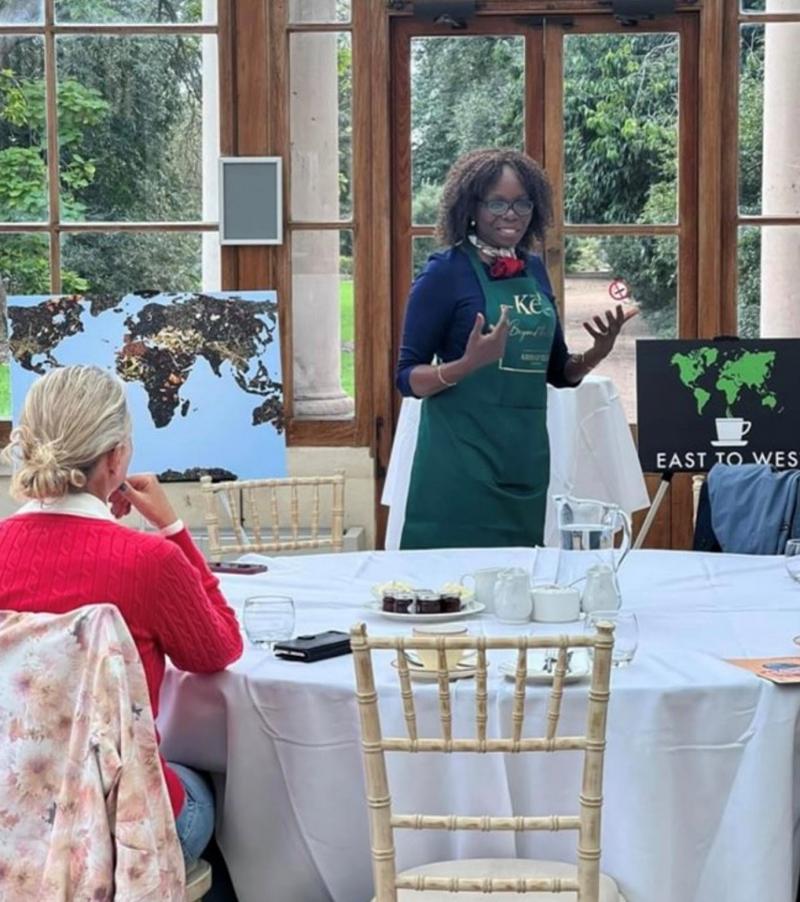“If tea was heroine, I’d be dead.”
I saw this saying on my friend’s sustainably produced cotton groceries bag the other day, and it brought a huge smile to my face. She, like me, is a “tea head” and quite happy to let the world know it. And we are not in the minority. You see, tea is here to stay and the only thing changing is the selection – what, how and where we choose to consume it.
It is not by accident that tea is only second to water in terms of volume of beverage consumed by the world (according to Euromonitor). There are several things that have driven this over the last 5,000 years and, while I do not know all of them, I do recognize a few.
For starters, tea is a warming or cooling break when you need it – and we all need one of those every now and then. The taste of tea (whichever tea you choose) is generally easier on the palate compared to other beverages, and this makes it a conscious and subconscious choice across all demographics for many. I think the affordability of it has also played a big part in this, too. Tea remains a very low-priced beverage in comparison to others – with substantial pros and cons. While this is very attractive to the consumer, it does not bode well for the producers. Indeed, it does not necessarily help the industry as a large section of tea has become commoditized by this.
Tea Is Not Just a Drink, It’s a Meal
In some of the largest markets, tea is not just a drink – it is a meal. Growing up in Kenya, I had schoolmates who had only a few cups of tea for breakfast before school. This is not unique or out of date; it is still replicated in many places around the developing world. Even when it is accompanied by other foods, tea sits center in the breakfast meal. And it is not just breakfast – it’s a mid-morning and mid-afternoon break, too. It’s also the drink at lunch and dinner in these places, and the meal is not complete without it. Can you imagine a Chinese meal without tea? Or, in the United Kingdom, the thought of a family member popping in and not being offered a cuppa? Unheard of! With tea embedded in the culture of these markets, it is weaved into the fabric of life and will be for many more generations.

Tea flows both ways, serving as a social opportunity as well as a solo break. It brings us together – building conversations and anchoring relationships. Many marriages, funerals and even businesses discussions are held over cups of tea everyday around the world. It also allows us to have a mindful moment, to re-center ourselves through the ritual of making it. It’s the escape of sipping away and emptying one’s mind, savoring the moment. Both of these have become even more needed over the last 18 months, as we all dealt with the “P” word (pandemic) and we will all probably be doing more of it in future.
But we will be choosing to do this differently.
Expect a Growth in Tea Drinking Outside the Home
More of us will choose to increase our tea drinking outside home – be it at work, as we eat out or on-the-go as we shop or travel. With a renewed interest in tea and increased offerings of more accessible formats, it is sound to expect growth in this area. Cold infuse tea bags or drops in your water bottle, ready-to-drink (or RTD) fortified teas to boost your pre-workout, or tea to sway you gently down as you unwind, or experiential custom-made bubble teas – just to mention a few.
We are now presented with exciting choices beyond a tea bag in hot water. Recently in Valletta, on a hot day exploring the sights, I stopped at Tea Fusion Bubble Tea and enjoyed selecting and customizing my own boba tea from a menu so rich and diverse in taste, color, texture and fun that I felt like a kid in a candy shop!

I chose a regular size, popping mango boba with added salted cream, cold with no ice and with reduced sugar. I sat down to enjoy it and watched as a steady flow of people – generally between 15 and 35, I’d say – came up and customized their choice. Next to it was a drinks bar and a coffee shop. Guess where the queues were?
Indulging in Tea in Its Many Forms
As we emerge from the dreaded COVID-19 pandemic, we also want to treat ourselves and indulge in tea in its many forms – none of which is more decadent than the afternoon tea experience. As Eileen Donaghey, The Afternoon Tea Expert, says:
“Afternoon tea is the perfect excuse to meet friends and socialize over tea. Aside from the elegance and atmosphere at afternoon tea, the one thing that was really missing was the conversations with friends and comparing thoughts about the finger sandwiches and compliments on which course was their favorite. As the popularity of afternoon tea has soared in the past five years, it is used to celebrate baby showers, hen parties and even I have seen afternoon tea at weddings. While afternoon tea is seen as the ultimate indulgence, it seems that every venue wants to get a slice of the action. In London, you can consume afternoon tea on plane, rail and automobiles, (alongside the ever-popular hotels). Afternoon Tea is certainly here to stay, and as restrictions ease, the kettles across the country will be singing.”

More Understanding of Tea and Using It in More Diverse Ways
Overall, we want to not only enjoy tea but also learn more about it – about the history and etiquette of it – and have a good time while at it. Never has the interest in learning about tea been higher. In fact, I recently spoke at a tea blending and tasting workshop at The Royal Botanic Gardens at the outstanding Kew Gardens. They collaborated with the premium brand Ahmad Tea London, to bring beautiful teas, a tea talk and afternoon tea experience in the beautiful surrounding. A truly plant-based tea experience!
In the end, we will continue to use tea in more diverse ways – cooking with tea, tea in beauty products and supplements, tea and art, as well as tea in alcohol and non-alcoholic refreshment drinks – and the list goes on. More brands will also seek to link tea to social issues, from diversity to equality to integrity and more.

In the industry, we will see and hear more of the large, growing domestic markets, where tea is a way of life; and while tea may not be packeted and retailed in the same way here as it is in the developed markets, there are vast amounts of it being consumed. With growing young populations, the way tea is done there will make bigger dynamic shifts.
More Growers Moving to Specialty Teas
The landscape on the production side of tea is also likely to shift. We’re already seeing more growers moving to specialty teas. And as the balance is tilting gently and gradually towards differentiated teas and away from traditional teas in developed markets. There may well be less but better pure tea consumed, with more “tea” in total encompassing all the other ingredients that play in this space, which are added to or drunk instead of pure tea.
Joyce Maina is a global tea expert and consultant with many years of experience in multiples areas of the industry. Born and raised in the tea growing country of Kenya, she now lives in the United Kingdom and is the founder and director at Cambridge Tea Consultancy. Her company focuses on tea business advisory, tea education, communications and connections – supporting all stakeholders in tea industry from growers to packers and NGOs. Maina’s tea journey began rather serendipitously when she joined Brooke Bond in Kenya as a graduate trainee in tea marketing. This opened up a whole new world of tea for her beyond the fine Kenyan teas she had grown up drinking. It enabled her to taste teas from all over the world and visit and work with producers in tea origin countries including China, Sri Lanka, Malawi, Tanzania, South Africa and India. With each new discovery, her love for tea grows. Over 30 years on, she still raves about tea. To learn more, visit CambridgeTeaConsultancy.com.
